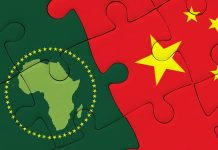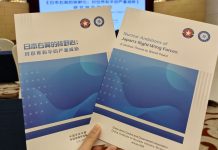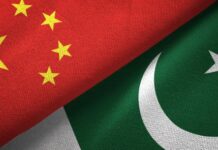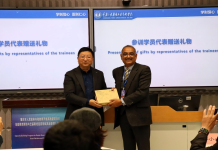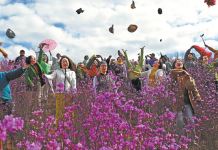DM Monitoring
Hunan: China has vowed to eradicate absolute poverty in rural areas by the end of 2020 despite the COVID-19 epidemic. While efforts are being made to ensure “no single poor area or individual shall be left behind” – as President Xi Jinping puts it – people that have recently shaken off poverty are striving for a better life.
Among the 529 residents in a small village in central China’s Hunan Province, 95 in 30 households used to live under the poverty line. The whole village was lifted out of poverty through rural tourism in 2018, and the average annual income of the residents reached 13,840 yuan (about 2,060 U.S. dollars) last year – way above the national poverty line of 2,300 yuan (about 340 U.S. dollars).
Shazhou Village, located in a mountainous area in Rucheng County, Chenzhou City, was the first stop of Xi’s inspection tour in Hunan.
Xi, also general secretary of the Communist Party of China (CPC) Central Committee, visited the village on Wednesday and learned about poverty relief industries and progress in consolidating poverty eradication at a modern agricultural tourism demonstration base.
Targeted poverty alleviation
China has adopted a targeted approach in in its poverty alleviation campaign, which means taking tailored relief measures to fit different local conditions.
The story of Shazhou is a prime example of that approach. The village boasts the beautiful scenery of the Luoxiao Mountains and the unique Yao ethnic culture – nearly two thirds of the residents belong to the Yao ethnic group. Tourism has played a significant role in Shazhou’s battle against poverty.
The village has promoted rural tourism and high-quality fruit planting, and arranged training programs to help villagers obtain such job skills as for restaurant cooks and rural tourism industry employees. More than 350 local jobs have been created through the efforts.
With all its residents lifted out of poverty, Shazhou has also been known for such national-level honor as the “village of beauty and leisure,” “role model for ethnic unity and progress,” “key village for promoting rural tourism” and “traditional Chinese village.”


